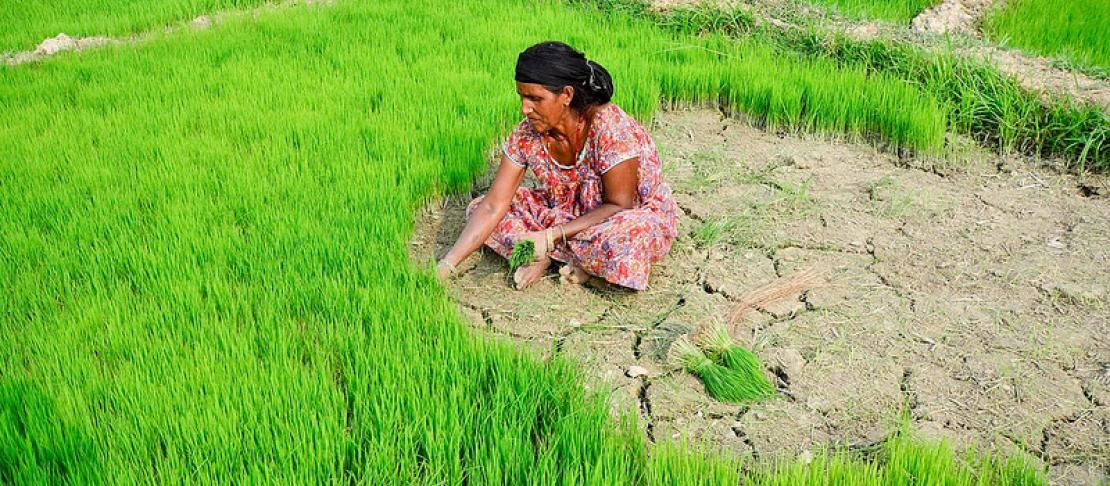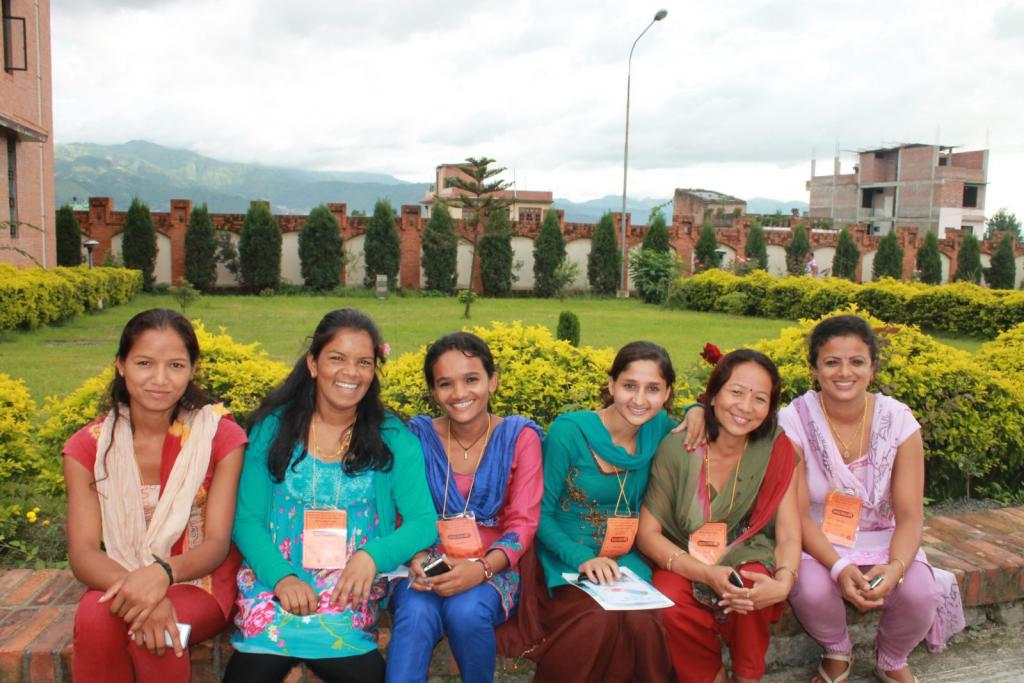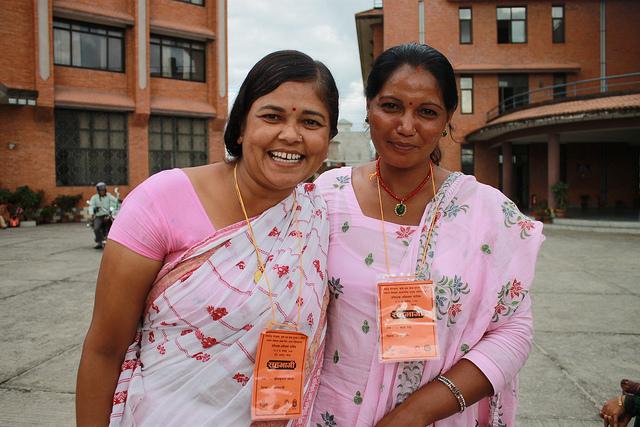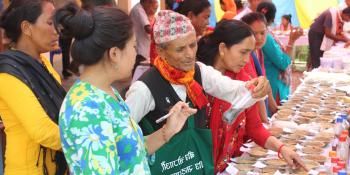Training women to train others: a smart way to spread the message about gender and climate change

In Nepal, women’s contribution to agriculture is as much as 60 percent. The CGIAR Research Program on Climate Change, Agriculture and Food Security (CCAFS) South Asia is interested in linking women farmers’ voices and experiences to research and policymaking. This focus on women is not only because they are a more vulnerable group but also because their support is crucial to making agriculture climate resilient.
To make this link our team recently organised a ‘Training-of-trainers’ workshop for women cooperative leaders on gender aspects within climate change, agriculture and food security issues.
Organised by the Youth and Small Entrepreneur Self-Employment Fund (YSEF), Ministry of Finance, Government of Nepal and CCAFS South Asia, the aim of the workshop was to train and empower these women to train others in their own districts. The hope is for each of them to reach 100 other women and educate them on the complexities of how men and women are impacted differently by climate change.
The expected outcome of this inaugural session was a ‘training strategy’ for these women to use in their future trainings.

The 90 women who attended the 'training of trainers' workshop will each train 100 women in their local regions, creating thousands of climate smart women across nepal.
The Agriculture Development Bank Limited in Bhaktapur was spruced up to host the 90 participants from 75 districts in Nepal. Several had defied pouring rains and travelled from as far as 800 km away, taking overnight buses along winding mountain roads.
The training started with a group exercise where one participant introduced another by her name, sometimes caste, which district she came from and her role within the cooperative she represented. It was a diverse group and their duties ranged from managerial to clerical. Several of the cooperatives that were represented, such as the Sri Mahila Jan Jyothi Krishi Samhiti, focused exclusively on women farmers.
Tapping into existing networks
As Punya Prasad Regmi, Executive Vice Chairman of YSEF, said: “Cooperatives are an excellent way to spread information about climate change to Nepalese women. Their reach is far and wide and they have a credible voice in society.”
To show their existing knowledge on climate change and its complex links with gender, the participants were asked to share their own perceptions on the topic. Several said they had heard the word climate change (in Nepali) but had little idea what it actually meant.
The presentations attempted to fill the knowledge gap and took an interactive format to keep up with questions from participants. Chintan Manandhar from Caritas Nepal pointed out that South Asia was less prepared to adapt to climate change and would probably face the worst of its impact.
One participant asked why developing countries such as Nepal had to ‘take the blame’ when carbon emissions from developed countries had contributed to climate change. Others wanted to know what type of seed varieties can help in tackling climate change.
A toolkit for success
Menaka Pokhrel, Chairperson at the Small Farmers’ Agriculture Cooperative in Bardiya district, said she was pleased to attend the training. “There is a lot to learn about climate change; it’s not a simple topic,” she said flipping through a summary version of the training-of-trainers manual.

women cooperative leaders are a vital link for ccafs: "their reach is far and wide and they have a credible voice in society"
Photo: Dharini Parthasarathy
This manual, on climate change and gender, was exclusively prepared by CCAFS South Asia and the NGO Alternative Futures to suit the South Asian context. It has been translated into regional languages including Hindi and Nepali.
Jamuna Acharya, from Didi Bahini Savings and Credit Cooperative Society in Myagdi district felt that there was not enough reading material in Nepali on the topic of climate change and gender. At least not that she has access to.
The first day ended with the participants breaking up into groups of eight and formulating a training strategy incorporating whatever they learnt during the day.
Adapting strategies to the local voice
On day two, the participants presented their strategies, which was followed by a leadership exercises on teamwork and facilitation. The sessions were interspersed by folk songs and dance and many of the lyrics were spontaneously changed to reflect the vagaries of climate change!
More than 10,000 copies of the Training-of-trainers summary manual in Nepali have been printed for distribution as a guide for facilitators at the district level. There are also plans to air weekly radio shows for six months from three radio stations in different regions of Nepal on topics related to the impact of climate change on agriculture.
CCAFS South Asia has in the past organised similar workshops in Bihar, India along with the NGO Alternative Futures and the Bihar Mahila Samakhya. Capacity enhancement, particularly through a gendered lens, in addressing the different impacts that climate change has on men and women is an important focus for CCAFS overall work.
Download the Train-the-Trainer manual: Gender, climate change, agriculture, and food security: a CCAFS training-of-trainers (TOT) manual to prepare South Asian rural women to adapt to climate change.
Dr. Punya P. Regmi, Youth and Small Entrepreneur Self Employment Fund, Ministry of Finance, Government of Nepal; and Dharini Parthasarathy, Communications Specialist, CCAFS South Asia



